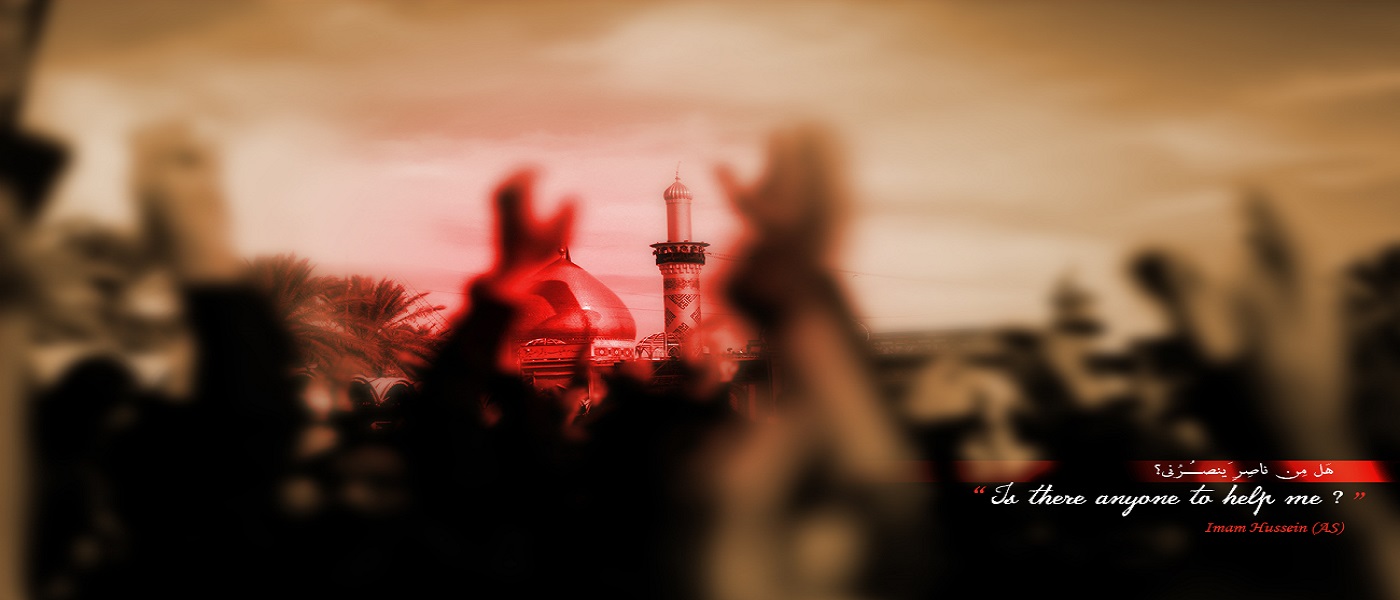

14 Prophet Muhammad (PBUH&HP) Quotes about Lady Fatima (AS)
1. Loving Lady Fatima (AS)
Whoever loves my daughter, Fatima (AS), will be with me in heaven, and whoever holds grudges against her will reside in hell.
Bihar al-Anvar, vol.27, p.116.
2. The Best in Worshiping Allah
Fatima (AS) is the best companion in the path toward serving and worshiping Allah.
Bihar al-Anvar, vol.43, p.117.
3. The Dearest
Fatima (AS) is the dearest of people to me.
Al-Shaykh al-Saduq, Al-Amali, p.259.
4. Lady Fatima (AS), the Joy of Her Father's Heart
Fatima is of my flesh, who is the light of my eyes and the warmth of my heart.
Al-Shaykh al-Saduq, Al-Amali, p.486.
5. Injustice to Lady Fatima (AS)
Woe to whoever does wrong to my daughter, Fatima (AS), after my death.
Bihar al-Anvar, vol.73, p.354.
6. Paying a Visit to Lady Fatima (AS)
Visiting Fatima (AS) equals to visiting me.
Bihar al-Anvar, vol.43, p.58.
7. Part of Her Father, Prophet Muhammad (PBUH&HP)
O’ Fatima (AS)! You are part of me, and I part of you.
Bihar al-Anvar, vol.43, p.32.
8. Prophet Muhammad (PBUH&HP)'s Deep Love for Her
O’ Fatima (AS)! I’m ready to give my life for you!
Bihar al-Anvar, vol.22, p.490.
9. A Heavenly Angel
Fatima (AS) is an angel who smells like heaven.
Bihar al-Anvar, vol.87, p.112.
10. An Avid Worshipper
Verily, Allah has poured faith and belief into the veins of Fatima (AS); thus, she is consistent in worshiping Allah.
Bihar al-Anvar, vol.24, p.74.
11. Lady Fatima (AS)'s Marriage
I did not give permission for Fatima (AS)’s marriage until I received Allah’s command as to her marriage.
Al-Shaykh al-Saduq, Uyoun Akhbar Al-Ridha, vol.2, p.59.
12. Lady Fatima (AS)'s Status
My daughter’s light is of Allah, and her status is higher than heaven and earth.
Bihar al-Anvar, vol.15, p.10.
13. The Four Honored Women
Heaven looks forward to four women: Mary, the daughter of Joachim, Asyia, pharaoh’s wife, Khadija, Khuwailad’s daughter, and Fatima (AS), Muhammad (PBUH&HP)’s daughter.
Bihar al-Anvar, vol.43, p.53.
14. Asking Allah's Pardon for Others
O’ Fatima! I give you the glad tiding of holding a high status in Allah’s regard, which provides you with the power to ask pardon for other people.
Bihar al-Anvar, vol.76, p.359.
Share This Article

What does Islam Say about Freedom of Thought?
United Nations General Assembly in the 18th article of The Universal Declaration of Human Rights states “Everyone has the right to freedom of thought, conscience, and religion; this right includes freedom to change his religion or belief, and freedom, either alone or in community with others and in public or private, to manifest his religion or belief in teaching, practice, worship, and observance.”
Also in the 19th article of The Universal Declaration of Human Rights freedom of expression is defined as follows: “Everyone has the right to freedom of opinion and expression; this right includes freedom to hold opinions without interference and to seek, receive and impart information and ideas through any media and regardless of frontiers.” [1]
In this text, I would like to explore this article and find out to what extent it is right or wrong according to the Islamic viewpoint toward freedom of thought and freedom of expression.
The Mistake of The Universal Declaration of Human Rights
The Universal Declaration of Human Rights puts freedom of thought and freedom of belief alongside each other. While there is a major difference between these two.
Murtaza Mutahhari emphasizes the difference between “thought” and “belief”. He argues that “thought is a potential caused by having intellect” and because every human being has intellect, and the potential to think about different issues, thus they think and “discover some truths about universe according to their talent”. [2] While he states that “belief might be based on human’s interest towards something” or “it might be based on following other people’s opinion”. But the true belief is “based on thinking”. He believes that most of the people shape their belief based on worldly interests. And there should be thoughtful people among them to guide them in their way of thinking and choices [3].
So, in his definition of thought and belief, he points out the mistake of The Universal Declaration of Human Rights. He concludes that people should have freedom of thought. Yet, about freedom of belief, unlike liberalism, Mutahhari states that “freedom is not the ultimate political goal to be respected under any condition”.
The main goal of freedom as he declares is to “reach perfection”. And if one’s belief is against his path towards perfection, then his belief needs an evolution, and should not be left alone to carry on his path towards adversity. [4]
Freedom of Thought in The Quran
There are more than 300 verses in the Quran that encourage people to think, such as: “Indeed We have sent it down as an Arabic Quran so that you may exercise your reason.” (12: 2), “[This is] a blessed Book that We have sent down to you, so that they may contemplate its signs, and that those who possess intellect may take admonition.” (38: 29), “Do they not contemplate the Quran, or are there locks on the hearts?” (47: 24).
Freedom of thought is also mentioned in the Quran in choosing the path of life where Allah says: “There shall be no compulsion in [acceptance of] the religion. The right course has become clear from the wrong.” (2: 256)
This verse clearly shows the importance of freedom of thought in the eyes of God, and the freedom to choose a religion. It is noteworthy that the Quran gives specific guidelines for finding the truth and recognizing wrong and right. As it is stated in the same verse; “So whoever disbelieves in idolatrous and believes in Allah has grasped the most trustworthy handhold with no break in it.” (2: 256)
Also, Allah introduces His best servants in the Quran as those who listen to different types of opinions without any prejudice, and then follow the opinion that is closest to the righteous way: “…So give good news to My servants, who listen to the word [of Allah] and follow the best [interpretation] of it. They are the ones whom Allah has guided, and it is they who possess intellect.” (39: 17-18)
When Allah encourages people to find their religion based on intellectual thinking, he keeps reminding them at different points about what is beneficial and what is harmful to human growth.
Does Islam Limit Freedom of Thought and Freedom of Expression?
As stated above freedom of thought is encouraged in Islam as long as it does not lead people and society toward diversity. “The objective of speech and expression according to Islam is to build up love, tolerance, social harmony, and understanding among members in order to ensure a peaceful coexistence.” [5]
So, freedom of thought is permitted in Islam as long as it does not harm the society. There is a fundamental rule in Islam, to which other rulings must not be contrary. A Muslim should neither be harmed nor should he harm anyone else. When thoughts are harmful to people in the society, Islam limits freedom of expressing the thoughts that may create social disorder.
Conclusion
So far we discussed that The Quran invites people to think and choose their religion and belief accordingly freely. There is no force in choosing religion. Yet, freedom of belief and expression is not completely allowed according to that fundamental rule of Islam.
That is, a Muslim should not be harmed and nor harm others. Sometimes, one may not have enough information about a particular issue and as a result is not able to form an educated opinion or belief. Hence, if someone wants to express his/ her opinions that have no scientific or logical foundations, and may bring about doubt in ordinary people’s beliefs, Islam would stand against it and will not allow its expansion. [6]
Reference:
- Human rights
- Mutahhari, Murtaza, About Islamic republic, p. 92-3
- Mutahhari, Murtaza, About Islamic republic, p. 97
- Rostami, Mohammad. Andisheh Sadegh, vol. 6
- Bhat AM (2014) Freedom Of Expression From Islamic Perspective. Journal of Media and Communication Studies 6: 69-77.
- Kassem AS (2012) The Concept of Freedom in the Quran. American International Journal of Contemporary Research 2, p. 165-173.
Read More

Democracy in the Light of Imam Hussain’s (AS) Movement
One of the questions that arises about Imam Hussain’s (AS) movement, which is of great importance especially in the modern days, is whether he desired to form an Islamic community, and if so whether the people willingly wanted to accept his leadership or not. In other words, did Imam Hussain (AS) actually want to rule over the Islamic community? Did he seek power? Did people join Imam Hussain (AS) of their own free will or they were forced, enticed or threatened to do so? The answers will reveal the core message of Imam Hussain (AS)’s revolution for us today.
Did the Infallible Imams Long for Leadership?
To answer these questions, we should first find out what the idea of the infallible Imams (AS) was about power. If we carefully look at their lives, we will come to know that they did not struggle for power nor did they have a craving to attain it. At the same time, though, whenever there was a public demand to govern over people, they did not refuse that request. Power or governing a community in the infallible Imams’ eye is nothing but a duty to serve people, protect their rights and bring justice among them.

They considered power as the means of reviving and expanding the divine goals and principles and preserving the moral values. So having political power was not of inherent value to them. You can see the proof in the following account:
“This world of yours is no better than the sneezing of a goat to me.”
After the death of the third caliph, Uthman, the crowd of people rushed to Imam Ali (AS) and asked him to take up the reins of government. But Imam Ali (AS) replied: “It is better for me to be your vizier and advisor rather than a ruler… leave me and go to others” [1]. In fact, if it was not for the sake of justice and people’s frustration and call for help, Imam Ali (AS) would have never accepted to be the ruler, as he said: “In my view this world of yours is no better than the sneezing of a goat” [2].
Or in another occasion, he said to one of his companions that his worn-out patched shoes were dearer to him than ruling over people unless for the fact that he may establish right and ward off wrong [2].
Imam Hussain’s (AS) Attitude toward Leadership (Political Power)
Imam Hussain (AS) had the same attitude toward power as his father. He did not seek a leadership role unless for the sake of eliminating injustice and corruption from the community. And that’s why Imam Hussain did not take the oath of allegiance to Yazid, the ruthless caliph of that time.
Clearly, it is every individual’s duty to fight against oppression and injustice in society. In other words, standing against tyranny is a moral and virtuous act in itself that is not entirely dependent on the companionship of others. However, when it comes to the issue of gaining power or accepting people’s leadership to fight against tyranny, the morality and value of this uprising depend on whether the leader is merely seeking reformation, or he struggles to gain supremacy over people. Such arrogance in leadership, in the latter case, can be eliminated by the presence of people.
Democracy is a Two-Way Street
When people of Kufa heard Imam Hussain (AS) had not pledged allegiance to Yazid’s government, they got impressed and sent thousands of letters to Imam Hussain (AS) asking him to go there and serve as their leader to fight against the tyranny. He did not take their request for granted nor did he accept their invitation right away. Instead, he decided to send his representative, Muslim ibn Aqil, to them to confirm their loyalty. That’s because in Islam the relationship between people and the government is a two-way street. On one way is the voting public -those who decide who becomes their leader and have to be loyal to him- and on the other path is the government, who also needs to be loyal to people and care about their well-being. And this is one of the important aspects of democracy in its true sense of the word.
Here another aspect of Imam Hussain’s (AS) movement is revealed which is beyond the mere fight against oppression: the necessity which made Imam Hussain (AS) decide to take power, i.e., people’s will and invitation.
Imam Hussain (AS) Accepted People’s Request
Imam Hussain (AS) thought it was necessary to accept the people’s leadership because they had asked him to do so.
If Imam Hussain (AS) had sought supremacy, he would have accepted people’s leadership at any cost. But he fulfilled what God told him in the Holy Quran:
“Do not be like those who left their homes vainly and to show off to the people, and to bar [other people] from the way of Allah” (8:47)
He also said: “Indeed, I have not risen to make mischief, neither as an adventurer nor to cause corruption and tyranny. I have risen solely to seek the reform of the Ummah of my grandfather (PBUH&HP)” [2].
He expressed it manifestly in his speeches that he would accept people’s leadership only if the elites of the community were all agreed on that invitation. He repeated it once again when he was faced with Hur’s army on his way to Kufa and emphasized that the people of Kufa had invited him by sending thousands of letters and requested him to take over the affairs. He explicitly stated that if the people of Kufa regretted their decision, he would return. He did not want to impose himself on people!

People Must Also Be Loyal to Their Leader
People of Kufa had invited Imam Hussain (AS), they had chosen him as their leader. But they were too weak to stand for what they had asked for. They were threatened and enticed by the tyrant governor of Kufa and could not keep their promise. Their hearts were with Imam Hussain (AS), but in practice, their swords were against him. They left Imam Hussain’s (AS) side and so the democracy they wished for was not materialized among them.
The Last Word
Finally, in the Islamic view of democracy, there has to be a balance between the rights and duties of both people and the rulers. Otherwise, there would be a disaster.
Many times in a democratic scene, there is a ruler who oppresses a lot of people. However, in the tragic story of Imam Hussain (AS), there is a group of people who choose and invite their leader, and promise to support him but go back on their pledge and fight against him, which ultimately resulted in the martyrdom of Imam Hussain (AS), one of the most righteous people on earth.
Reference:
- www.islamquest.net
- www.al-islam.org
Read More

